
Rosa-Too-Little
by Sue Felt
It was winter. The snow was piled in shapeless mounds along 110th
Street.
But it wasn’t the snow that bothered Rosa as she
followed Margarita up the library steps into the warm indoors.
For as long as she could remember Rosa had been following her big
sister, Margarita, to the library.
And every time Rosa waited while Margarita returned her books.
And every time she waited Rosa was sad. She wanted very much to have
books of her own to return.
“Please, Margarita,” she would say, “when can I join?” “You are too
little, Rosa. You have to write your name and get a card before you can
take books out.”
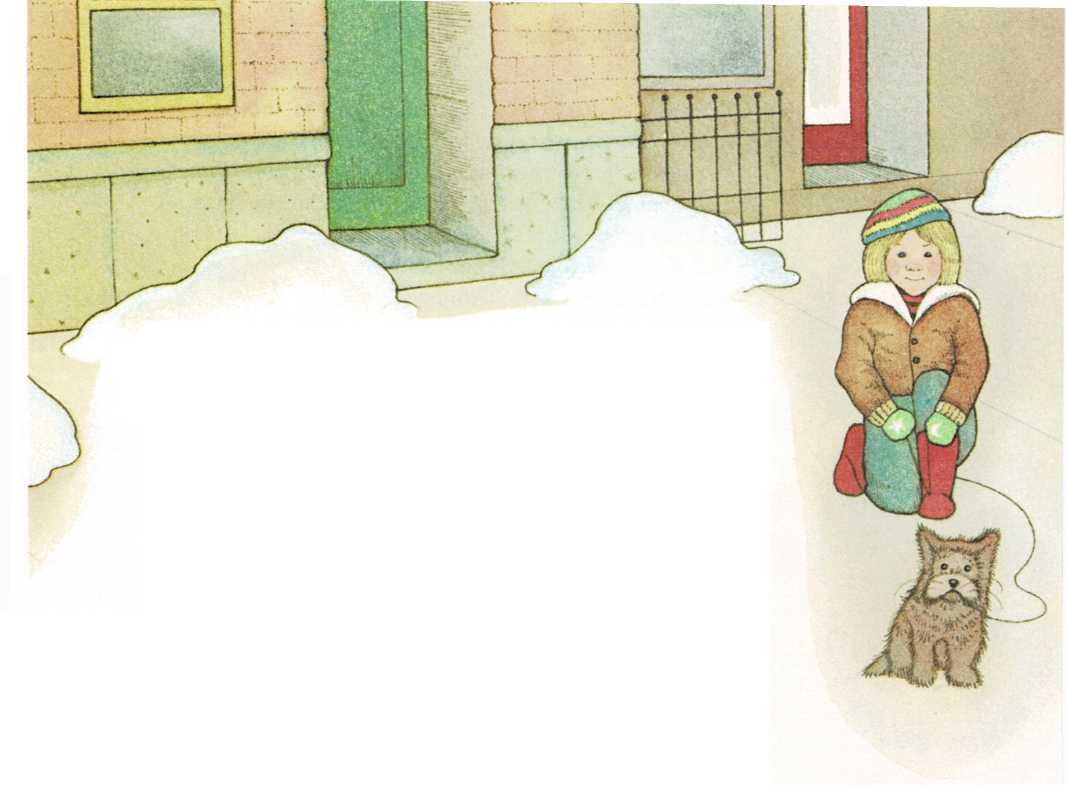
“Oh, there is Peter Rabbit in bed,” Rosa would say,
“and there is Mrs. Rabbit making him some Camomile
Tea and Flopsy, Mopsy, and Cottontail are eating bread and milk and
blackberries.”
“It is always the same. Last winter I was too little. Last summer I was
too little. Why am I always too little to have my own books?” Rosa
sighed.
Rosa was big enough to help her mother at home while Margarita and
Antonio were at school. But whenever Margarita came from school to take
her to the library, Rosa was ready.
Always before Margarita chose new books she would hold Rosa up to press
her face against the cool glass to look into that small other world of
the Peep Show.
On Fridays Margarita and Antonio went to Story Hour upstairs while Rosa,
who was too little, sat in the Reading Room looking at Picture Books.
She looked at the pictures until she knew every one by heart. This made
Rosa sad, too. She was certain that if she could only have her own
library card and take home her own books she would be able to read them.
She wanted so
much to go to Story Hour, too, and hear the library teacher tell fairy
tales. Sometimes Margarita told Rosa the stories or read them to her at
home. But Rosa knew it was not quite the same as hearing them at Story
Hour. She was sure she must be nearly big enough to make a wish and help
blow out the candle after Story Hour. Antonio had told her about that
part, too.
“Oh, how I would like to do that. Why am I always too little?” Rosa
sighed.

The snow melted. After light spring rains the trees in Central Park were
fringed with baby green leaves.
Margarita carried her jump rope to school and often played double Dutch
on the sidewalks in the evenings as the nights grew warmer.
And Rosa was too little for jump rope.
When Margarita wasn’t jumping rope she was roller skating. And Mother
said Rosa was too little for roller skates.
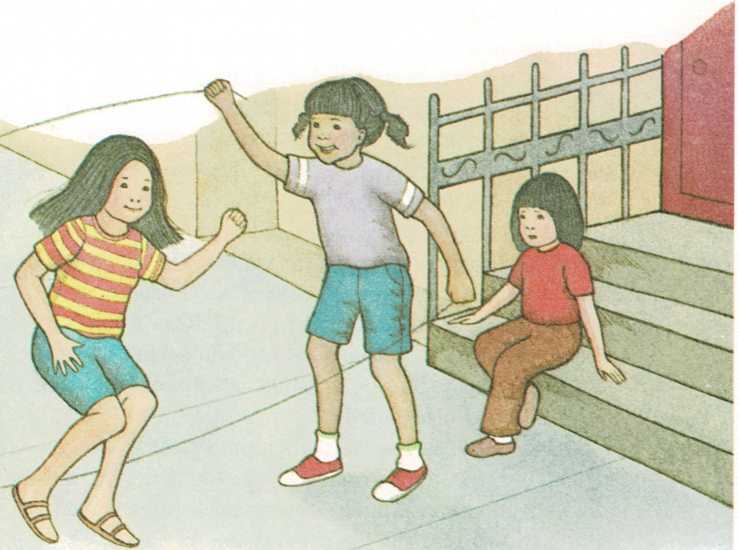
It seemed to Rosa she was too little for anything. Antonio and his
friends once again were training their pigeons on the rooftops. Antonio
and his friends didn’t want her on the roof. And Antonio was too busy to
take her to the library. No one would take her to the library. And that
was what Rosa wanted to do most of all.
She was sad.
Rosa begged and begged her mother to let her go alone to the library.
Finally one day her mother said yes.
Rosa could go all by herself. She remembered to wait for the green
lights crossing the street. She remembered to wait in line. She was very
proud to do it all alone.
But when at last she reached the desk and the library teacher asked for
her books, Rosa suddenly remembered something else.
Rosa Maldonado did not have any books; she did not even have a library
card. She was too little to join. Poor little Rosa covered her face,
pushed her way out of the line, and ran down the stairs, out the door,
and all the way home.
“Rosa, little dear, what is the matter, chiquita?” her mother asked.
Rosa sobbed louder, but at last her mother understood.
“Rosa,” she comforted, “we will make a plan, a secret for you and me!”
And Rosa was not quite so sad!
The next day was hot, but Rosa and her mother didn’t mind. They started
their plan.
All through the long, hot, city summer Rosa worked on her plan except
for the days when the street-cleaning men turned on the water hydrant,
the Pompa, Rosa, Margarita, and Antonio called it. Then they rushed
through the fast, cold spray of water. The pavement was cool on the
soles of their feet.
Most of the children forgot about books, but not Rosa.
Sometimes in the afternoon Margarita took Rosa to hear the Picture Books
read in the library. Everything was quiet in the summer. There were not
so many children, for\’some of them were in camp and some were in the
country and all the rest were too hot and sticky to do much of anything.
Rosa listened to the stories and smiled inside with her secret.
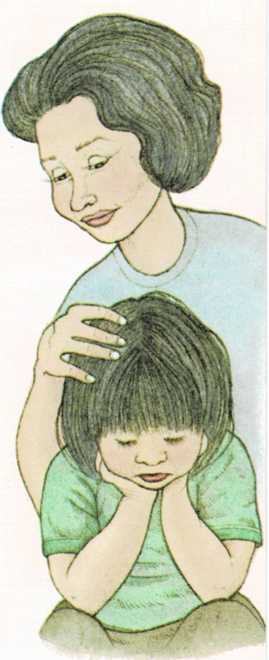
And every day Rosa worked on her plan in a special corner at home so
that Margarita and Antonio wouldn’t guess.
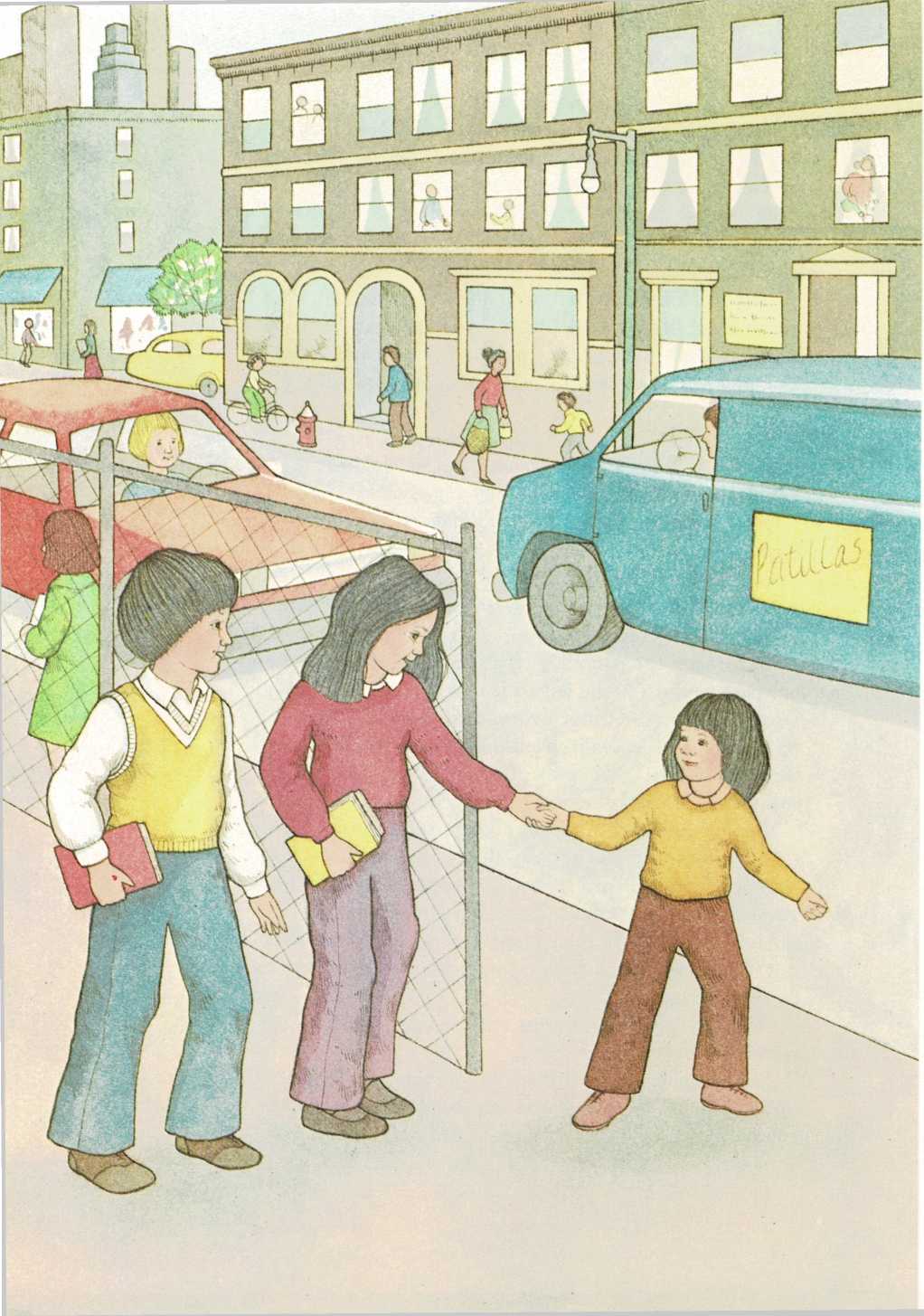
One day Mama said:
“When school starts in September, Rosa may go with
Margarita and Antonio.”
Then Rosa smiled. She was not too little any more.
She could hardly wait.
The last day before school was to begin the little penny merry-go-round
came. La machina, the children called it. Everyone on 110th Street who
had pennies had a ride, and the others followed the music. But they
weren’t so happy as when la machina had been there in the spring.
Playtime was over—no more long days of jump rope, marbles, skating,
and stoopball.
But Rosa skipped with joy.
On Monday school started, and Rosa walked with Margarita and
Antonio—quiet and proud. It was very exciting to be in school, but
there was something else Rosa wanted to do, too.
At three o’clock she waited by the playground gate till Margarita and
Antonio came out and then Rosa pulled her sister’s hand.
“Margarita, Margarita, today may I go?”
“Rosa, what are you talking about? How do you like school?” said
Margarita.
“It’s wonderful. But Margarita, today may I go to the library with you?”
asked Rosa, still pulling her sister’s hand.
“But Rosa,” said Margarita, “why today? I have homework to do.”
“Please, Margarita.” And finally Margarita gave in to Rosa’s pleading
and they went together to the library.
Lots of boys and girls were back again to get their cards after the
summer. Soon Rosa’s turn came.
“What do you want, Rosa?” asked the librarian, who had seen Rosa so many
times she knew her name.
“I want to join, please,” said Rosa.
“Oh, but Rosa, you are very little. You must be able to write your name,
you know.”
“I can write my name,” Rosa said proudly.
The library lady smiled and took a white slip of paper
from a drawer, dipped a pen in the inkwell, and said: “Write your name
on this line, Rosa.”
Rosa held tight to the pen and carefully, carefully made the letters.
The pen scratched. Rosa wasn’t used to ink, and she wasn’t sure the
librarian could read her name, but when Rosa looked up, the library lady
smiled.
“That’s fine, Rosa,” she said.
“Why, Rosa,” Margarita said, “that’s wonderful!” and she wrote in the
address and school and Rosa’s grade and age.
“Rosa, take this home and have your mother fill out the other side, then
bring it back,” the librarian said.
Rosa ran down the stairs and out the door. She ran all the way home and
into the kitchen where her mother was preparing dinner.
“Mama, Mama, I joined, I joined! I wrote my name and you must sign the
paper so I can get my card.”
Her mother smiled proudly and kissed Rosa’s hot little face. She signed
her name and Rosa’s father’s name on the back of the paper.
The librarian was surprised to see Rosa back so soon.
“I ran,” Rosa said, and showed her mother’s name on the paper. Then the
librarian gave Rosa a blue slip of paper and Rosa wrote her name again.
All the time Rosa saw her name on a brand-new card. It would be all her
own. The library teacher helped her read the pledge:
When I write my name in this book, I promise to take good care of the
books I use in the library and at home and to obey the rules of the
library.
Then Rosa stood on a stool and wrote her name in the big book. That was
the best moment of all, because now Rosa Maldonado’s name was in the
book, the big black book where all the other children who could write
had signed their names.
She listened to the rules carefully, although she already knew them. She
promised to take good care of
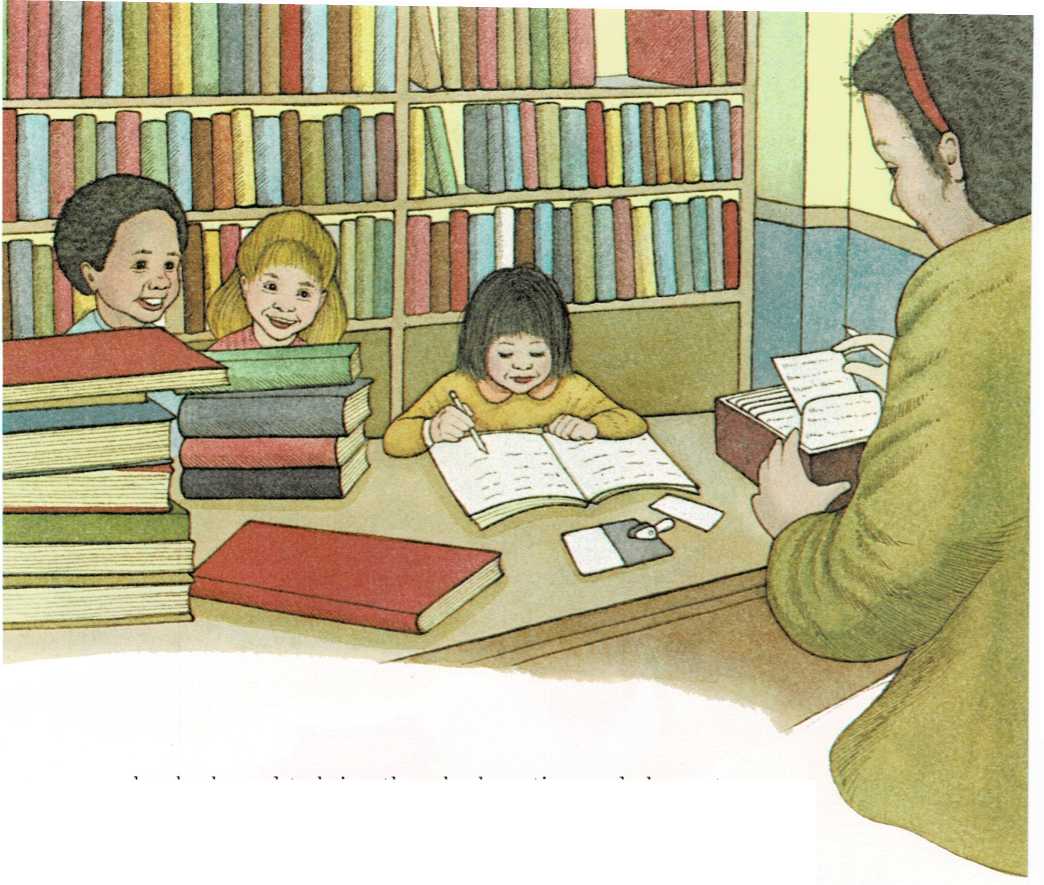
her books and to bring them back on time and always to have her hands
clean!
Then Rosa walked over to the Easy Books and found the two books she
wanted. She knew just where to find them.
Rosa then waited in line to have her books stamped. She smiled back at
the library teacher. Then she walked down the library stairs and out
into the brisk evening. She squeezed her very own books.
“I am not too little any more,” said Rosa.
She was very happy.

Tell Me Some More by Crosby Bonsall and Mike’s House by Julia Sauer
are two other good stories about children and libraries. And if you want
to meet another delightful Puerto Rican family, try Friday Night Is
Papa Night by Ruth Sonneborn.
